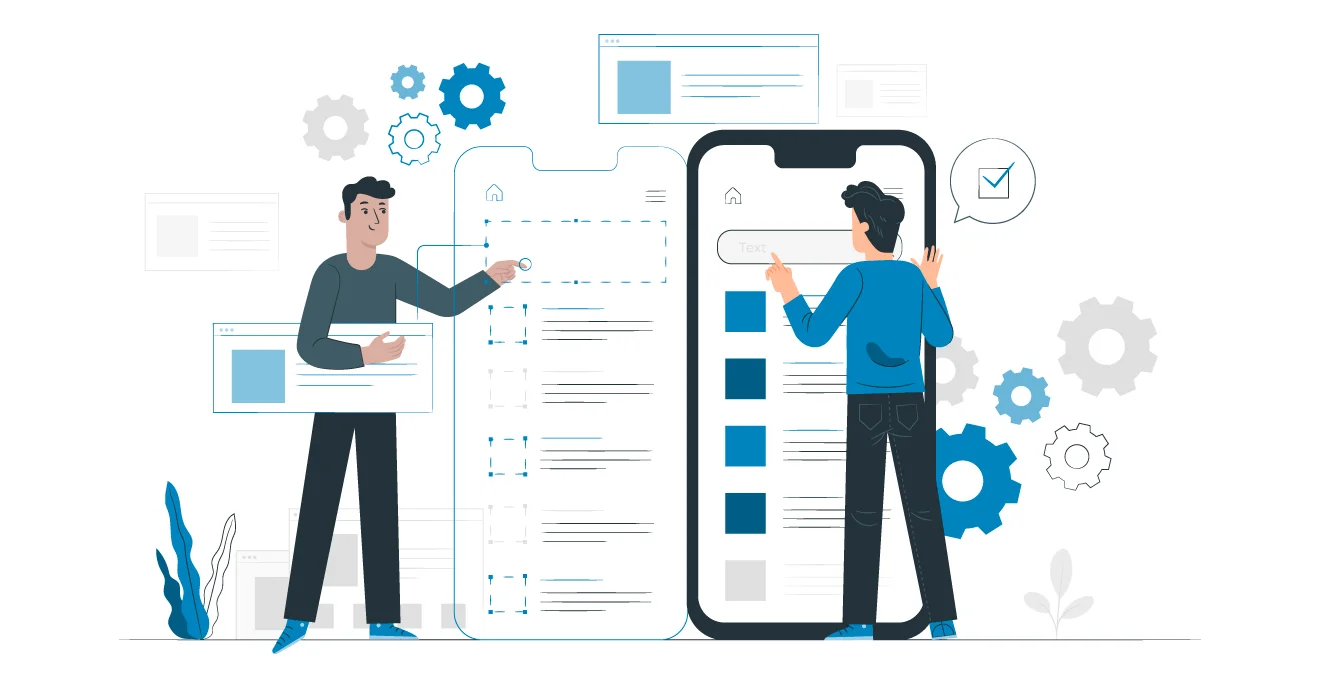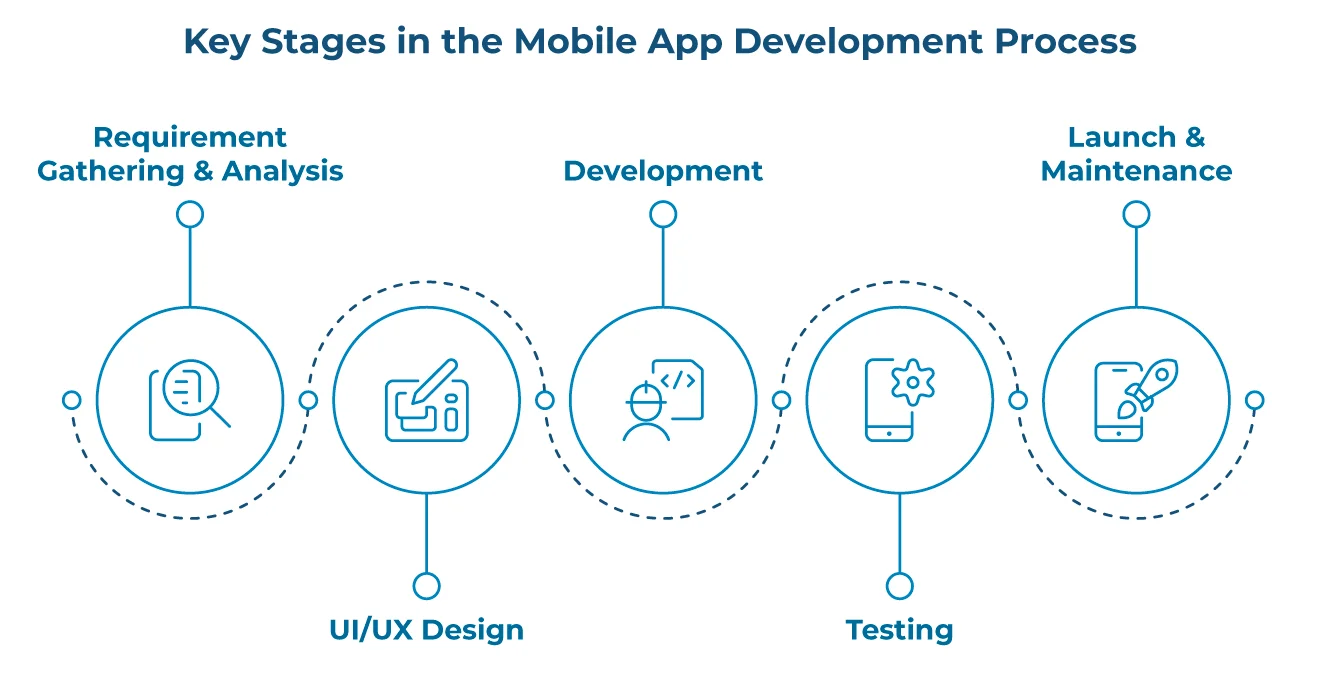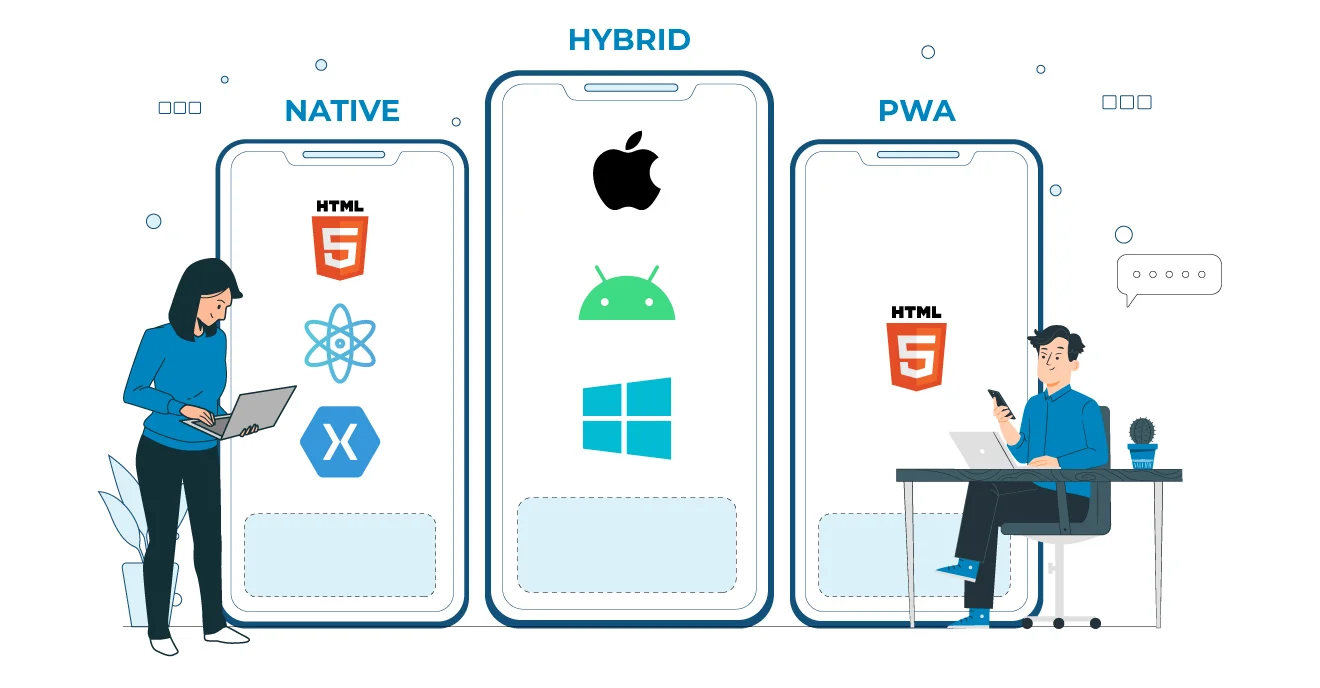In today’s digital age, mobile applications have become an essential part of our daily lives. From social networking and online shopping to health tracking and personal productivity, mobile apps help individuals and businesses operate more efficiently and stay connected. But how are these apps made, and what exactly is mobile app development?
Let’s break it down in simple terms.
What is Mobile App Development?
Mobile app development is the process of creating software applications that run on mobile devices such as smartphones and tablets. These applications can be developed for different platforms like Android, iOS, or both using native or cross-platform frameworks.
The process involves designing user-friendly interfaces, coding the app’s functionality, testing for bugs, and deploying the app to app stores like Google Play or Apple App Store. A good mobile app is intuitive, fast, secure, and solves a real user problem.
At HMMBiz Web Solutions, we specialise in building scalable and customised mobile apps tailored to your business needs—whether it’s for internal operations, customer engagement, or product/service delivery.
Types of Mobile Apps
There are three main types of mobile applications, each suited to different business goals and technical needs:
Native Apps
These are built specifically for one platform (either Android or iOS) using platform-specific programming languages like Kotlin (for Android) or Swift (for iOS).
Example: Instagram on iOS is a native app designed to fully leverage Apple’s hardware and software features.
Hybrid Apps
These apps are developed using web technologies like HTML, CSS, and JavaScript, and then wrapped in a native shell. They can run on both Android and iOS platforms with a single codebase.
Example: Uber initially adopted a hybrid app model to ensure faster deployment and broader compatibility across devices.
Progressive Web Apps (PWAs)
PWAs are web applications that behave like native apps when accessed from a mobile browser. They don’t require installation from app stores and can work offline.
Example: Pinterest’s mobile web app is a PWA that loads quickly and provides a native-like experience, especially on slower networks.
Each type has its pros and cons, and the right choice depends on your goals, budget, and timeline.
Why Mobile App Development Matters for Businesses
Having a mobile app is no longer optional—it’s a necessity. Here’s why:
- Direct customer engagement through personalised notifications and in-app features
- Improved brand visibility on mobile devices
- Access to valuable user insights via analytics
- Increased sales and customer loyalty with smoother user experiences
Whether you’re a startup looking to launch a new idea or an enterprise aiming to optimise operations, investing in a mobile app can provide a significant competitive edge.
Key Stages in the Mobile App Development Process
At HMMBiz, we follow a structured approach to ensure seamless development and timely delivery:
- Requirement Gathering & Analysis: Understanding your business objectives and app functionality
- UI/UX Design: Crafting a user-friendly, visually appealing interface
- Development: Writing clean, scalable code for both frontend and backend
- Testing: Ensuring performance, security, and a bug-free experience
- Launch & Maintenance: Publishing the app and keeping it updated regularly
This end-to-end service ensures that our clients receive a high-performing mobile application that evolves with their business.
Real-World Example: Mind Alcove App by HMMBiz
One of our most inspiring mobile app projects was Mind Alcove—a mental wellness platform designed to help users reflect on their emotions through journaling and mood tracking.
🧠 The Challenge
The client needed a safe, interactive space for users to write diaries, track emotions, and engage anonymously with a like-minded community.
💡 The Solution
We developed a cross-platform mobile application (iOS & Android) and a web app that lets users write journals, record their voice, track moods, and manage affirmations. We also built a powerful admin panel for managing users, categories, prompts, and referrals.
This solution empowered Mind Alcove to support mental well-being with technology, reaching thousands of users seeking personal growth and emotional clarity.
Read the Mind Alcove full case study
Final Thoughts
Mobile app development is more than just writing code—it’s about delivering solutions that impact real lives and businesses. Whether you want to launch a customer-facing app or streamline internal processes, HMMBiz Web Solutions is here to turn your idea into a high-performing digital product.
Ready to build your mobile app?
FAQs
1. What is app development?
App development is the process of creating software applications that run on mobile devices such as smartphones and tablets. It includes planning, designing, coding, testing, and launching an app to provide a specific service or solve a user’s problem.
2. What is a no-code app?
A no-code app is an application built using visual development platforms that allow users to create apps without writing traditional programming code. These platforms use drag-and-drop tools and pre-built templates, making app creation accessible for non-developers.
3. What are the main platforms for mobile app development?
The two primary platforms are Android (by Google) and iOS (by Apple). Apps can be built specifically for one platform (native) or for both (using cross-platform frameworks like Flutter or React Native).
4. How long does it take to develop a mobile app?
The development timeline depends on the app’s complexity, features, and platform. A basic app might take 2–3 months, while a feature-rich or enterprise-level app can take 6+ months from planning to launch.
5. What’s the difference between native and hybrid apps?
Native apps are built for one specific platform using its native language, offering high performance and full access to device features. Hybrid apps use a single codebase for both platforms, saving time and cost but with some performance trade-offs.



